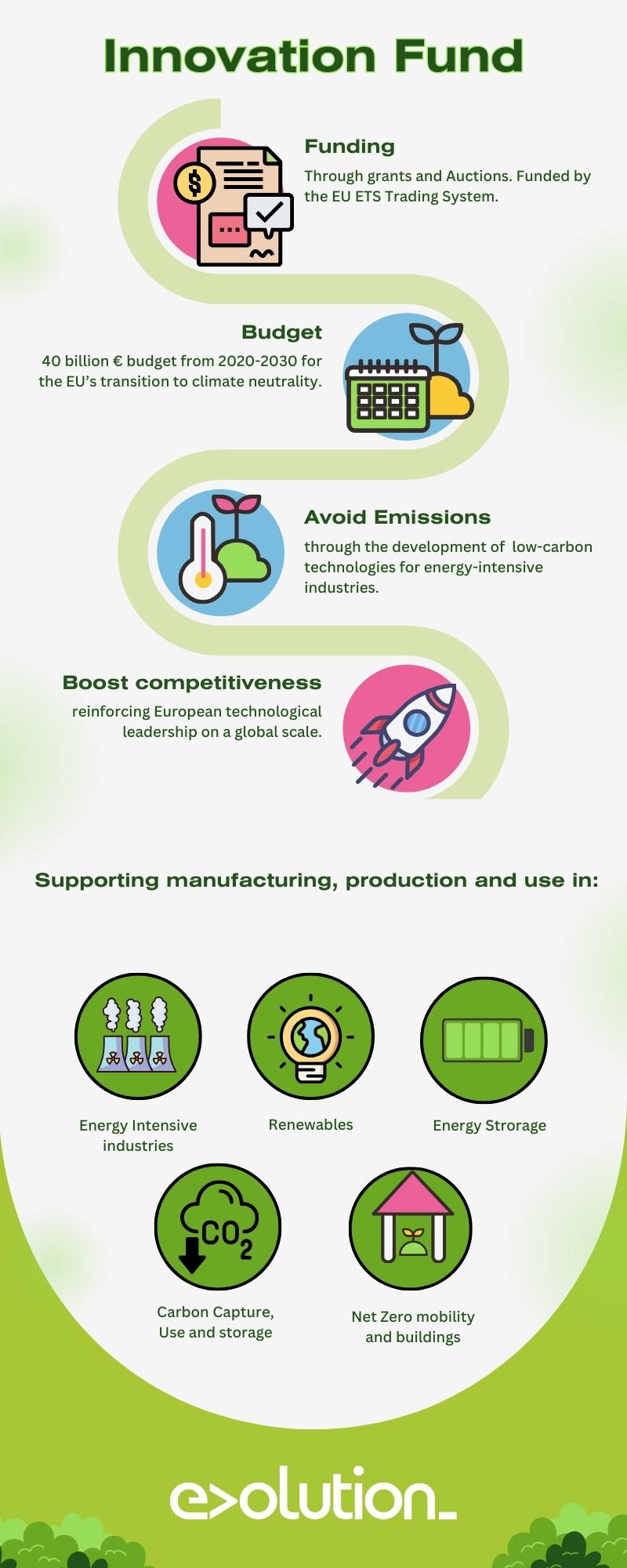Innovation Fund
The funding boost for low-carbon technologies
The Innovation Fund is one of the world’s largest funding programmes for the demonstration of innovative low-carbon technologies that significantly reduce emissions. It is a key funding instrument to deliver the EU’s commitments under the Green Deal, the Net-Zero Industry Act and the Paris Agreement.
It targets projects that show maturity in planning, business, and finances and have a TRL between 6-9.
Key features of the Innovation Fund
🟠The Innovation fund programme is destined to SME & large corporations who can apply as single applicants or in a consortium.
🟠It offers funding of up to 60% of the eligible costs
🟠It focuses on breakthrough technology for energy-intensive industries, such as products substituting carbon-intensive ones; renewable energy, energy storage, carbon capture, use and storage, and net-zero mobility.
🟠 The call is open to any country; however the projects need to implemented in one of the EU Member States, Norway or Iceland.
Topics and Budget breakdown
The IF Grants are grouped into a single call with five distinct topics. Three address general decarbonization based on project size (large, medium, and small-scale), while two focus on specific areas: Manufacturing/Cleantech and Pilots.
The manufacturing topic centers on producing components crucial for renewable energy, energy storage, heat pumps, and hydrogen production.
The pilot topic aims at constructing and operating projects dedicated to validating, testing, and optimizing highly innovative, deep decarbonization solutions across all eligible sectors.
The call boasts an impressive total budget of €4 billion, marking a 25% increase from the previous call.
🟠General Decarbonization – Large-Scale:
- Total Budget: €1.7 billion.
- Projects with CAPEX exceeding €100 million per project.
🟠General Decarbonization – Medium-Scale:
- Total Budget: €500 million.
- Projects with CAPEX exceeding €20 million, up to €100 million per project.
🟠General Decarbonization – Small-Scale:
- Total Budget: €200 million.
- Projects with CAPEX exceeding €2.5 million, up to €20 million per project.
🟠Pilots:
- Total Budget: €200 million.
- Projects with CAPEX exceeding €2.5 million, up to €40 million per project.
- Total Budget: €1.4 billion.
- Projects with CAPEX exceeding €2.5 million per project (no maximum).
Follow us on our Blog, LinkedIn, or subscibe to our newsletter to be informed about upcoming R&D dates.


